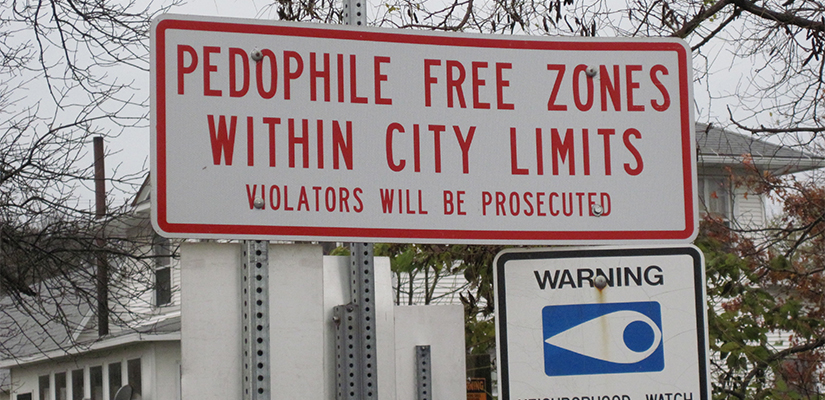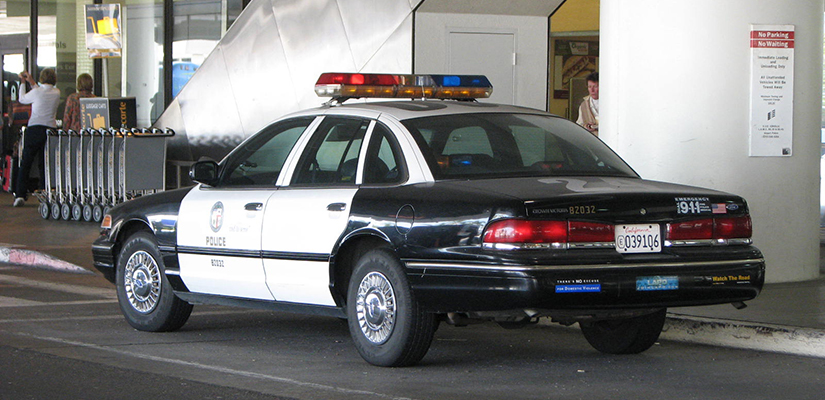On November 17, 2010, sometime between 4:30 and 5:00 PM, paroled sex offender Lawrence Brown was released from prison. At 5:29 PM, police stopped his vehicle, arrested him for a parole violation, and he was headed back to prison.
One of Brown’s parole terms was that he not be alone with another female in a vehicle. After his release, Brown was picked up by a female friend. His friend was on the phone with his parole officer asking for directions to the office when police stopped the vehicle. Authorities had followed the vehicle the entire trip.
Brown stated that he had so many parole terms that he did not know that he could not be in a vehicle alone with another female. His female friend also stated she was not aware of this parole condition and he did not tell her.
In 1985, Lawrence Brown was convicted of seven counts of kidnapping and sexually assaulting two young girls. He was sentenced to 49 years in prison, but was scheduled to be released early after four mental health professionals determined that he was suitable for release.
On the day of his release, the Orange County District Attorney’s Office tried to block Brown’s release and pressured one mental health professional to change her opinion and designate him a violent sexual offender. This would have required Brown to be admitted into a mental institution until he was no longer deemed a violent threat. The OCDA placed a hold on his release until 11:59 PM, but the warden at Chino State Prison overruled the hold and released him in the late afternoon.
The OCDA also stated that a new alleged victim has contacted them and stated that she was sexually assaulted by Brown when she was a young girl. Her statements may be used against him at his parole violation hearing.
In a press conference by Orange County District Attorney Tony Rackauckas on November 16, Rackauckas called Brown “the boogie man of every child and their parents’ worst nightmare. . . . Free to roam our streets, this monster is a ticking time bomb.” Rackauckas later asked, “isn’t it only logical that Brown knows he can never again be caught violently kidnapping and sodomizing a young girl, and next time he will murder his victim. . .? What does Brown’s next victim look like?”
A person who is convicted of a crime is usually granted parole at the completion of the sentence. Parolees do not have the same rights as persons who have never been convicted or pled guilty to a crime: they must agree to various parole conditions upon release, and a parole violation may subject the parolee to re-incarceration. (Penal Code section 3041.5(b)(1).) If arrested for a parole violation, the parolee has a right to a parole revocation hearing to argue either that he did not violate parole, or that mitigating circumstances exist so that parole revocation is not warranted. (Penal Code section 3044.)
If you are arrested for a parole violation, DO NOT speak to law enforcement besides to state that you do not want to answer their questions and that you wish to speak to your Southern California criminal defense attorney. Do not admit that you committed a parole violation and do not sign anything without first consulting an attorney. Note that the burden of proof for a prosecutor is lower in a parole revocation hearing than in a criminal trial, and the prosecutor may present witnesses who will testify in favor of revoking your parole. Thus, it is imperative that you do not harm your case by communicating with police.
At Wallin & Klarich, we have helped people in a variety of criminal matters, including parole violations. Call us today at (888) 280-6839 or visit us at our website at www.wksexcrimes.com. We will be there when you call.



